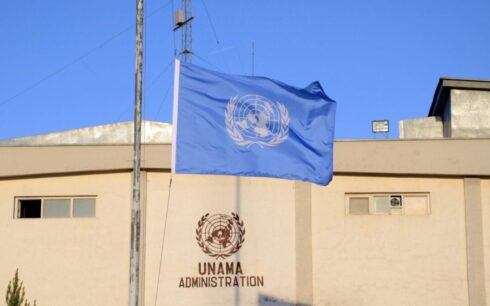Abdul Salam Hanafi, the Taliban’s deputy chief minister, said Thursday that Afghan migrants are returning to the country “in difficult conditions,” and called on Iranian authorities to treat deportees with dignity in camps and border facilities.
Addressing a press conference in Hanafi said he has visited migrants in various border points, including Nimroz and Herat provinces.
He urged Iran to uphold both Islamic and humanitarian obligations toward migrants.
“Each returnee carries their own story,” Hanafi said. “We call on Iranian officials to avoid any mistreatment of migrants in detention camps.”
He said that more than 2 million Afghans have been deported or have returned “voluntarily” from Iran, Pakistan, and other countries since the beginning of the broader expulsion campaigns.
Hanafi claimed that the Taliban administration has taken steps to support returnees, including distributing 2,000 Afghanis (about $25) per individual and planning the construction of 35 residential settlements across several provinces.
He also claimed that they have also distributed land to vulnerable returnees.
Testimony from many returnees contradicts remarks by the Taliban. In interviews with Amu TV, several migrants recently expelled from Iran said they lacked the financial means to travel back to their home provinces and had received no assistance upon arrival.
Others described facing an “uncertain future” in Afghanistan, where economic hardship, insecurity, and lack of basic services remain widespread.
According to figures reviewed by Amu TV, Iran and Pakistan expelled more than 17,500 Afghan families between July 4 and July 8 — 17,149 from Iran and 428 from Pakistan — through what Taliban authorities described as both forced and voluntary returns.
The International Organization for Migration (IOM) reported that at least 450,000 Afghan migrants returned from Iran between June 1 and the first week of July, many under pressure or without formal due process.
The deportations have drawn criticism from human rights groups and international observers, who warn that mass returns are overwhelming Afghanistan’s limited capacity to reintegrate migrants and could heighten social and economic tensions in already fragile areas.




